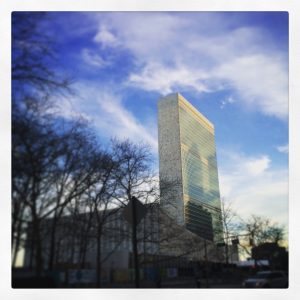Decisions in the Age of Emergence

Last week, we got news that April 2016 was the hottest April since we began keeping records; but not only that, that it will be the 12th month in a row to have set the record. While only a few months into the year, it is a near certainty that it will be one of the hottest years on record…for the third year running. Both streaks are unprecedented, and represent on a planetary scale what William Forster Lloyd referred to over a century ago as the Tragedy of the Commons.
We’re living in a time of aggregates, when the concepts of “externalities” and “unintended consequences” are no longer acceptable, because we – as a species – have reached scale. And as we’ve reached scale, the gaps in our personal knowledge, scope of responsibility or mandate can no longer deal with the scope of the issues we face.
We live in an age now where single companies are larger than the largest of the city states that Plato wrote about, spanning the globe in a way that Alexander the Great or the Khans could only dream of. Organizations like the UN tackle missions like immunization and hunger on a planetary scale. Politicians attempt to shift populations orders of magnitude larger than our ancestors could have imagined, yet in a context so interconnected and complex that changes to a road can affect the mortality rates a generation later, or decisions in housing can inflate costs in healthcare.
There is a missing concept in the conversation around complexity and scale, and it is emergence; the spontaneous presence of order and structure out of chaotic, diverse inputs. It is when the whole is more than the sum of its parts – when none of us have what all of us have.
Life is emergent. Somehow, the sum of our molecules, cells and chemistry amount to this emergent property – life – which none of them individually possess. In our social world, the same applies – culture, ideas – emerge from a cauldron of people and place. The cafes of Paris, the innovation of Silicon Valley, the philosophers of Greece, the politics of Rome – these were all points of emergence, which we all recognize today, but whose exact causes are much harder to pinpoint. That is, we know it when we see it, but we struggle to say where it comes from.
Emergence, as a lens, matters now more than ever because of the complexity that we face in the world. Complexity is becoming a tired concept – bandied about by consulting firms and tech companies – but nonetheless reflects a common impression that the number of factors needed to make decisions in policy and business are multiplying due to the increasing interconnectedness of a globalized, heavily populated world.
But if you look at many of the responses to complexity, you begin to see that while our attempts to understand the problem are bearing fruit – we get that complex interactions can confound our efforts – we are addressing them with an old paradigm, albeit aided by new tools. That is to say, we have accepted that the world is super complex, but our approach is to try and understand all that complexity. Whoops.
This is where emergence comes in. Using the lens of emergence, you can look at complexity and say “I will never understand all of this”; and then use that as your starting point.
Accept it. You can’t.
There are so many factors, so many actors, so many influences and moving parts, you, as an individual, can’t understand it all. Artificial Intelligence researchers don’t know why a neural network returns a result, they know that it does. We don’t know why the human body is alive, but it is.
Somehow all of those moving parts cause something to happen – properties to emerge.
Emergent Design is based on the belief that putting in place certain structures can influence the path of emergence – that you can influence outcomes by paying attention to the patterns of emergence; by studying the ways that certain outcomes occur, we can use design to facilitate them occurring.
That is the idea of it being a discipline of design; if emergence is continually happening, emergent design is about trying to intentionally influence emergence towards certain objectives.
So back to emergence and complexity; an appreciation of emergence requires a mindset in which there are no externalities, no unintended consequences, only properties and effects. As Stafford Beers put it, “The purpose of a system is what it does.” Our task, then, is to try and manipulate what it does, without getting immediately stuck in trying to understand completely how or why it does it.

